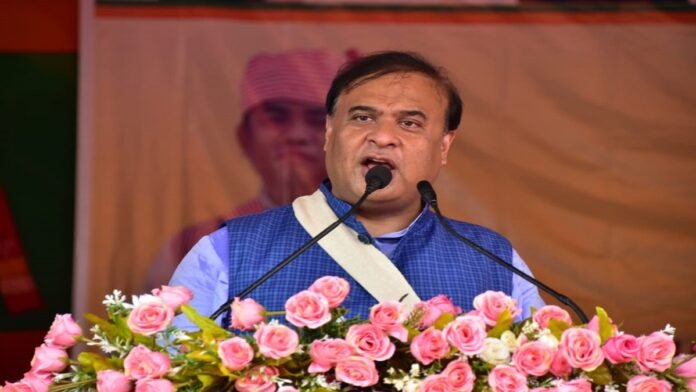Himanta Biswa Sarma, the Chief Minister of Assam, has ignited a contentious debate by openly condemning polygamy, asserting that he would not permit his daughter to marry a man with multiple wives. His remarks have sparked discussions about the social, cultural, and legal implications of polygamy in India, shedding light on deep-rooted traditions and evolving societal norms.
Sarma’s unequivocal stance against polygamy came during a public event where he addressed a range of social issues, including gender equality and women’s rights. His remarks, though seemingly personal, carry significant weight given his position as a prominent political leader in the region and his influence over public opinion.
Polygamy, the practice of having multiple spouses simultaneously, has long been a subject of controversy and debate in India. While the practice is legally prohibited for most communities under the Hindu Marriage Act, it is permitted under certain circumstances for Muslims under personal laws. This legal distinction has fueled debates about gender equality and religious freedom, with critics arguing that polygamy perpetuates patriarchal norms and discriminates against women.
Sarma’s condemnation of polygamy reflects broader shifts in societal attitudes towards gender equality and women’s rights in India. As more women assert their agency and demand equality in personal relationships, traditional practices like polygamy are increasingly being scrutinized and challenged.
The Chief Minister’s statement also underscores the changing dynamics within Indian families, where parents are becoming more vocal about their expectations for their children’s marriages. Sarma’s assertion that he would not allow his daughter to marry a man with multiple wives reflects a growing emphasis on individual choice and consent in marital relationships.
Sarma’s remarks have drawn both praise and criticism from various quarters. Supporters have lauded him for taking a stand against a practice they view as archaic and discriminatory. They argue that polygamy undermines the principles of equality and mutual respect in marriage and perpetuates harmful gender stereotypes.
However, critics have accused Sarma of hypocrisy, pointing out that his own political party, the Bharatiya Janata Party (BJP), has been accused of pandering to conservative elements that support polygamy. They argue that Sarma’s remarks may be seen as political posturing aimed at appealing to a more progressive voter base.
The debate over polygamy is not limited to Assam or India alone but extends to many countries and cultures around the world. In some societies, polygamy is widely accepted and even considered a sign of wealth and status, while in others, it is outlawed and stigmatized.
Despite the legal and social complexities surrounding polygamy, there is a growing consensus among experts that the practice is detrimental to women’s rights and well-being. Studies have shown that women in polygamous relationships often face greater economic insecurity, emotional distress, and social isolation compared to their monogamous counterparts.
Moreover, polygamy can have negative consequences for children, leading to issues such as parental neglect, intra-family conflict, and emotional instability. Research suggests that children born into polygamous families may experience higher rates of poverty, educational underachievement, and psychological problems.
In light of these concerns, there have been calls for legal reforms to address the issue of polygamy and protect the rights of women and children. Some activists have called for a uniform civil code that would abolish polygamy and ensure equal rights for all citizens regardless of their religious affiliation.
Ultimately, the debate over polygamy raises fundamental questions about the nature of marriage, family, and gender relations in society. As attitudes towards these issues continue to evolve, policymakers, lawmakers, and civil society must grapple with the complexities of polygamy and work towards creating a more equitable and just society for all.

